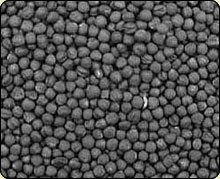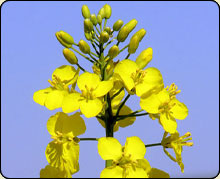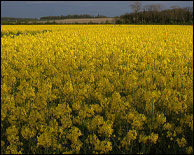|
Hunting, Recreational, Fishing, Investment Land For Sale in Mississippi, Delta, Ranch, Farm, Timber Land for Sale In Mississippi
|
Welcome
Thacker Mountain Lodge Land and Property Division offers canola acreage, canola farms, Mississippi canola farms, Delta canola farms, Mississippi canola farms for sale and Mississippi Delta canola farms for sale. Thacker Mountain Lodge also offers, for sale Premium Mississippi, Delta, and Mid-South, land, ranches, farms, investment, recreational, timberland, and commercial property located in the river delta. This area is referred to as the Mississippi River Canola Delta area. The Canola is the valuable, harvested component of the crop. The crop is also grown as a winter-cover crop. It provides good coverage of the soil in winter, and limits nitrogen run-off. The plant is ploughed back in the soil or used as bedding. On some ecological or organic operations, livestock such as sheep or cattle are allowed to graze on the plants.
|

 Canola Controversy
Canola Controversy
The Monsanto Company has genetically engineered new cultivars of canola that are resistant to the effects of its herbicide Roundup. They have sought compensation from farmers found to have the Roundup Ready gene in Canola in their fields without paying a license fee. These farmers have claimed the Roundup Ready gene was blown into their fields and crossed with unaltered Canola. Other farmers which claim that after spraying Roundup in non-Canola fields to kill weeds before planting, Roundup Ready volunteers are left behind, causing extra expense to rid their fields of the weeds.
|

 Canola Health Effects
Canola Health Effects
Canola has been linked with adverse effects in asthma and hay fever sufferers. Some suggest that oilseed pollen increases breathing difficulties. But this is unlikely as rapeseed is an entomophilous crop, with pollen transfer primarily by insects. Otherssuggest that this is caused by the inhalation of oilseed rape dust, and that allergies to the pollen are relatively rare. It may also be that since canola in flower has a distinctive and pungent smell, hay fever sufferers wrongly blame the canola just because they can smell it An alternative explanation may be that it is simply the sheer volume of rapeseed pollen in the air around farmland which triggers an allergic reaction in hay fever sufferers on inhalation, or following prolonged exposure to high levels. Thacker Mountain Lodge Land and Property Division offers canola acreage, canola farms, Mississippi canola farms, Delta canola farms, Mississippi canola farms for sale and Mississippi Delta canola farms for sale.
|
|
|
Canola Farms for Sale, Mississippi Canola Farms, Mississippi Delta Canola Farms, Canola Farms
|
Canola is a bright yellow flowering member of the family Brassicaceae (mustard or cabbage family). The name derives from the Latin for turnip, rāpum or rāpa, and is first recorded in English at the end of the 14th century. Older writers usually distinguished the turnip and rape by the adjectives round and long(- rooted) respectively. See also Brassica napobrassica, which may be considered a variety of Brassica napus. Some botanists include the closely related Brassica campestris within B. napus. (See Triangle of U)..

|
|
|
Canola has been linked with adverse effects in asthma and hay fever sufferers. Some suggest that oilseed pollen increases breathing difficulties. But this is unlikely as rapeseed is an entomophilous crop, with pollen transfer primarily by insects.
|
|

|
Need Mississippi hunting leases, mid-south hunting and fishing spots, Mississippi real estate, homes, farms, ranches, and Mississippi deer hunting, deer hunting land for sale in Mississippi, Thacker Mountain Lodge land and timber property division can supply what you need.
|
|
|

 Canola Cultivation Canola Cultivation
In agriculture, canola are certain varieties of oilseed rape, or the oil produced from those varieties. It´s a trademarked hybrid of rape initially bred in Canada. Canola Oil was produced in the 19th century as a source of a lubricant for steam engines, and the oil has a bitter taste due to high levels of acids. Canola has been bred to reduce the amount of acid, yielding a palatable oil.
Canola is grown for the production of animal feed, vegetable oil for human consumption, and biodiesel; leading producers include the European Union, Canada, the United States, Australia, China and India. In India, it is grown on 13% of cropped land. According to the United States Department of Agriculture, Canola was the third leading source of vegetable oil in the world in 2000, after soybean and oil palm, and also the world's second leading source of protein meal, although only one-fifth of the production of the leading soybean meal.
World production is growing rapidly, with FAO reporting that 36 million tones of canola was produced in the 2003-4 season, and 46 million tones in 2004-5. In Europe, canola is primarily cultivated for animal feed (owing to its very high lipid and medium protein content), and is a leading option for Europeans to avoid importation of GMO products. Thacker Mountain Lodge Land and Property Division offers canola acreage, canola farms, Mississippi canola farms, Delta canola farms, Mississippi canola farms for sale and Mississippi Delta canola farms for sale.
Natural canola oil contains 50% erucic acid. Wild type seeds also contain high levels of glucosinolates (mustard oil glucosindes), chemical compounds that significantly lowered the nutritional value of canola seed press cakes for animal feed. Canola, originally a syncopated form of the abbreviation "Can.O., L-A." (Canadian Oilseed, Low-Acid) that was used by the Manitoba government to label the seed during its experimental stages, is now a tradename for 'double low' (low erucic acid and low glucosinolate) rapeseed. Sometimes the "Canola-quality" label is affixed to other varieties as well.
The Canola is the valuable, harvested component of the crop. The crop is also grown as a winter-cover crop. It provides good coverage of the soil in winter, and limits nitrogen run-off. The plant is ploughed back in the soil or used as bedding. On some ecological or organic operations, livestock such as sheep or cattle are allowed to graze on the plants.
Processing of canola for oil production provides canola animal meal as a by-product. The by-product is a high-protein animal feed, competitive with soya. The feed is mostly employed for cattle feeding, but also for pigs and chickens (though less valuable for these). The meal has a very low content of the glucosinolates responsible for metabolism disruption in cattle and pigs. Canola "oil cake" is also used as a fertilizer in China, and may be used for ornamentals, such as Bonsai, as well.
Canola leaves and stems are also edible, similar to those of the related bok choy or kale. Some varieties of rapeseed are sold as greens, primarily in Asian groceries, including those in California where it is known as yao choy or tender greens.Canola is a heavy nectar producer, and honeybees produce a light colored, but peppery honey from it. It must be extracted immediately after processing is finished, as it will quickly granulate in the honeycomb and will be impossible to extract. The honey is usually blended with milder honeys, if used for table use, or sold as bakery grade. Canola growers contract with beekeepers for the pollination of the crop.

|

Canola Biodiesel
Canola oil is used in the manufacture of biodiesel for powering motor vehicles. Biodiesel may be used in pure form in newer engines without engine damage, and is frequently combined with fossil-fuel diesel in ratios varying from 2% to 20% biodiesel. Formerly, owing to the costs of growing, crushing, and refining canola biodiesel, rapeseed derived biodiesel cost more to produce than standard diesel fuel. Prices of canola oil are at very high levels presently (start November 5) owing to increased demand on canola oil for this purpose. Canola oil is the preferred oil stock for biodiesel production in most of Europe, partly because canola produces more oil per unit of land area compared to other oil sources, such as soy beans.
There is however concern over the use of Canola for use as biodiesel as N2O is a potent greenhouse gas with 296 times the global warming potential of CO2. It has been estimated that 3-5% of nitrogen provided as fertilizer for rapeseed is converted to N2O.

|

Thacker Mountain Lodge Timber and land, Property division offers hunting and fishing property for sale. If your investment property group wants to buy mid-south hunting property, Mississippi hunting land for sale, Mississippi homes, Mississippi farms, Mississippi ranches and hunting property, Mississippi hunting property, mid-sized hunting property, or Mississippi recreational hunting property, Thacker Mountain Lodge Timber and land Property Division can help.
Need Mississippi hunting leases, mid-south hunting and fishing spots, Mississippi real estate, homes, farms, ranches, and Mississippi deer hunting, deer hunting land for sale in Mississippi, Thacker Mountain Lodge land and timber property division can supply what you need.
Call The Thacker Mountain Lodge Land and Timber Property Division today or email us at
properties@thackermountainlodge.com

|
|
|
|